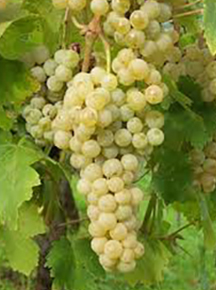 DELIVERY FROM £4.95
DELIVERY FROM £4.95 FREE DELIVERY FOR ORDERS OVER £100
FREE DELIVERY FOR ORDERS OVER £100Home » Community » Wine and Grape Guide » Invernenga

The Invernenga grape is a rare and ancient native white grape variety from Brescia, Lombardy. Despite its long history, it remains little-known outside the region and is today cultivated only in very limited areas, mostly in old vineyards on the western side of Brescia. Its rarity and unique profile make it a fascinating discovery for wine enthusiasts and those interested in Italy’s indigenous grape heritage.
The exact origins of the Invernenga grape remain uncertain, but its cultivation in Brescia has been documented for centuries. The first official reference dates back to 1826, when the Ministry of Industry, Agriculture and Commerce of the Austro-Hungarian Empire listed Invernenga as one of the most widely grown grape varieties in the province of Brescia. The name “Invernenga” likely derives from the Italian word inverno (winter), reflecting the tradition of preserving its grapes throughout the colder months to be enjoyed as table grapes. This unusual characteristic contributed to its popularity in local households before modern preservation methods existed.
In recognition of its cultural and viticultural importance, the Invernenga vine was officially registered in the National Register of Grapevine Varieties in 1971. Today, it survives primarily in small plots, with the most notable expression being found in the Ronchi di Brescia IGT, where Invernenga is vinified as a unique varietal wine.
The Invernenga vine shows medium vigor and reaches medium-late ripening. Its clusters are medium-sized, pyramid-shaped, and moderately loose, with berries that are medium to large, spherical, and covered with a green-yellow skin. The leaves are medium to large, lobed, and consistent with the morphology of traditional Lombard grape varieties.
Wines made from the Invernenga grape are easily recognizable for their distinctive style, showing a pale straw-yellow color with delicate greenish hues, a fine and pleasantly fruity aroma, and a fresh, approachable palate marked by subtle almond notes and naturally low acidity.
This makes Invernenga wines approachable, light, and well-suited to casual drinking. While not as structured or age-worthy as more famous Italian whites, Invernenga offers an authentic expression of Brescia’s viticultural history and terroir.



Please enter either your username or email address.
(Please check your spam folder)
Before we say ciao, why not join our newsletter & stay up to date on everything happening on planet Italyabroad.com